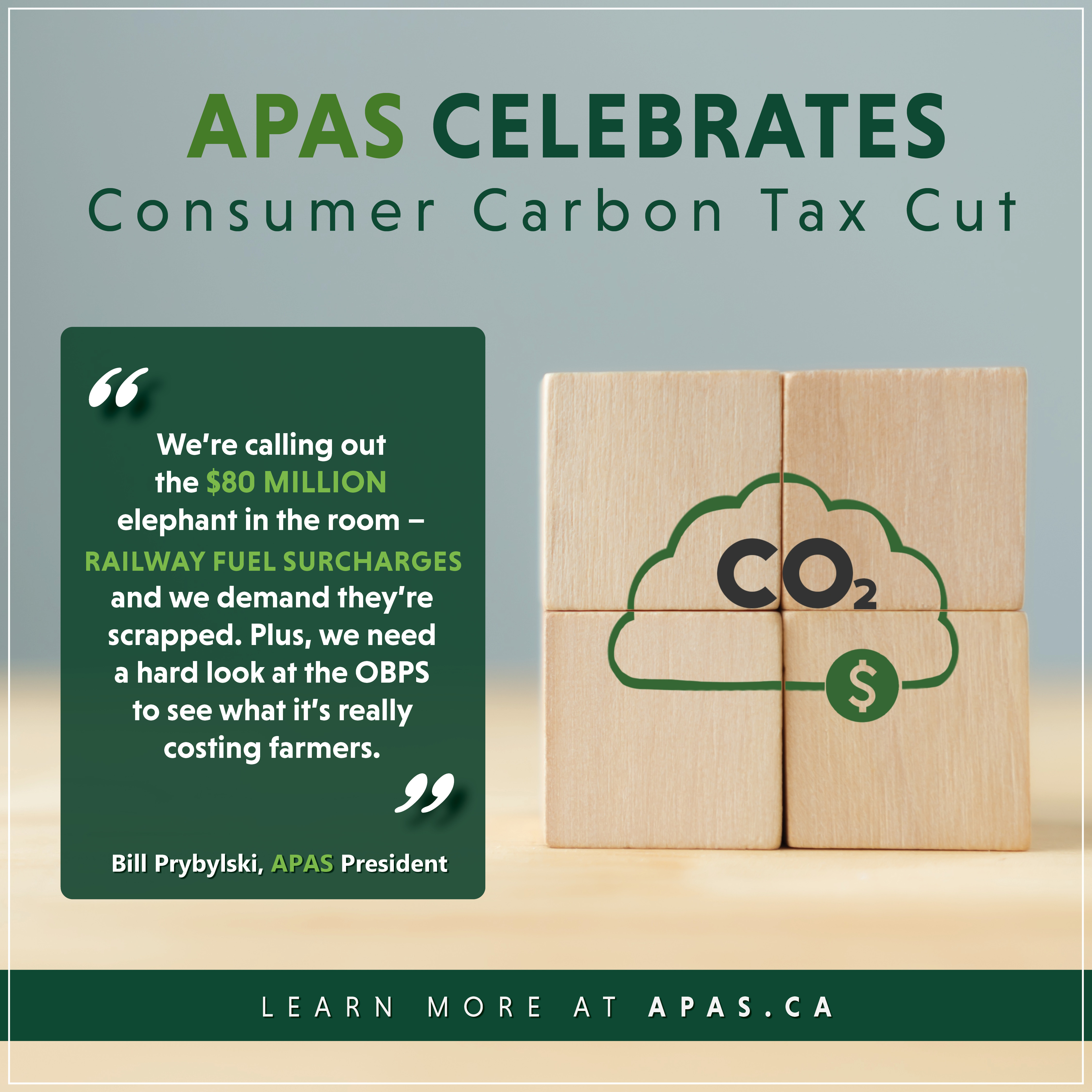REGINA, SK – March 28, 2025 – The Agricultural Producers Association of Saskatchewan (APAS) today expressed its strong support for the federal government’s decision to eliminate the consumer carbon tax (fuel levy), effective April 1, 2025. This policy change, announced following the signing of a ministerial directive on March 14, is a significant victory for Saskatchewan farmers who have borne the brunt of the tax since its inception in 2019. APAS also acknowledges and thanks the Government of Saskatchewan for its announcement on March 27, 2025, to pause the industrial carbon tax rate under its Output-Based Performance Standards (OBPS) Program, providing further relief.
“This is undoubtedly good news for Saskatchewan farmers,” said APAS President Bill Prybylski. “Since 2019, the carbon tax has been digging into farmers’ pockets, threatening to increase costs by about $9 per acre this year alone. Dropping this tax is more than just a relief; it’s necessary to ensure our farmers can remain competitive in these challenging economic times.”
APAS has been a vocal critic of the carbon tax, highlighting its direct and indirect impacts on farm profitability. The association pointed out that farmers have seen increased costs throughout the supply chain as the tax is passed down the line, reducing farm gate returns.
While welcoming the elimination of the federal fuel levy and acknowledging the provincial OBPS pause, APAS remains concerned about the potential continuation of railway fuel surcharges, which is estimated to cost Saskatchewan farmers around $80 million this year. The association is urging for immediate clarity to ensure service providers like railways remove these surcharges in line with the federal policy change.
“While we celebrate these crucial steps at both the federal and provincial levels, we must now ensure that the benefits are fully realized by farmers,” added Prybylski. “The question of railway fuel surcharges remains a significant concern, and we need immediate assurance that these added costs will also be eliminated. Moving forward, it is vital that any future climate policies are developed in close collaboration with the agriculture sector to avoid placing undue burdens on food producers.”
APAS also notes that with the elimination of the consumer fuel levy, attention will now turn to the federal Output-Based Pricing System (OBPS) that remains in effect. The association emphasized the need for complete transparency and a thorough analysis of the impacts of the OBPS on farm input costs, especially considering potential adjustments following the removal of the fuel levy.
For more information, please contact:
APAS Communications at communications@apas.ca




